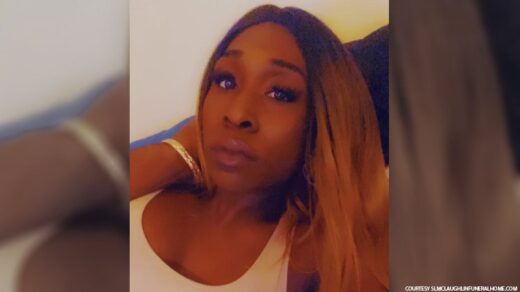‘The Capote Tapes’ Shows Why Truman Capote Still Matters
Author: Trudy Ring

Chronicler of crime, creator of a charismatic call girl, confidant and court jester to high society — and a pioneer in creating the chosen family: These were all sides to Truman Capote, and they’re all on display in a new documentary, The Capote Tapes.
In his life, Capote was never out of the public eye once he became famous with his first novel, Other Voices, Other Rooms, published in 1948, and he continues to captivate audiences 37 years after his death. He was an out gay man when that was uncommon and even dangerous, and he made a mark on culture high and low, as a brilliant writer and a witty, gossipy talk-show guest who sometimes verged on self-parody. He’s been the subject of biographies and biopics, with the late Philip Seymour Hoffman winning an Oscar for portraying him in 2005’s Capote. But director Ebs Burnough’s documentary shows there’s still more to know about him and that he’s still relevant to the LGBTQ+ community.
Burnough, a veteran of politics who worked in the Obama White House, is making his feature documentary debut with The Capote Tapes. He was inspired to make the film by reading a biography of CBS founder William S. Paley. The most interesting people in the book, Burnough says, were Paley’s wife, Babe, and her close friend Capote.
Filmmaker Ebs Burnough
Burnough had first encountered Capote’s writings as a middle-school student in Tennessee, but after reading the Paley biography, he read more of Capote’s work and more about his life, including the relationships with his “swans,” as he called Babe Paley and the other wealthy women he befriended in New York City. Capote’s period of researching and writing In Cold Blood, the best-selling true-crime book about a multiple murder in Kansas, was chronicled extensively in the Hoffman film and a competing feature, Infamous, with Toby Jones as Capote. But, Burnough says, “I was really interested in a broader examination of the person and who he was.”
The tapes from which the film takes its title were a great help in crafting that broad examination. Sarah Plimpton, the widow of writer George Plimpton, shared “boxes and boxes” of audiotapes George had made when he was writing his biography of Capote, Burnough says. “She was so generous,” he says. “There was such rich material.”
Many clips from the tapes are heard for the first time in the film, with socialites, entertainers, and fellow writers offering memories of Capote — Slim Keith, Lee Radziwill, Lauren Bacall, Gore Vidal, Norman Mailer, and more. There are also filmed interviews with several writers, including Jay McInerney, Colm Tóibín, and Dotson Rader. But one of the most important people in the documentary doesn’t have a famous name. That’s Kate Harrington, who was the daughter of one of Capote’s lovers, Jack O’Shea, and who was essentially adopted by Capote in her early teens.
“What I was really struck by was his desire to have a family,” Burnough says of Capote. Capote’s history with his birth family had been marked by abandonment, which likely deepened the desire. Becoming a father to Harrington was “an extraordinary undertaking” at a time when the idea of a gay man forming a family was a foreign concept to most people, says Burnough, who was getting married to Pierre Lagrange while making the film.
“Truman was a pioneer in creating his own family, something he was quite courageous with,” Burnough says. Interviewed in the movie, Harrington offers a portrait of Capote as not just a social butterfly but a hard-working writer and caring but mischievous man — among other things, he taught her the art of eavesdropping.
Capote at his famous Black and White Ball
The film also chronicles some of the better-known aspects of Capote’s life. There are the writings, Breakfast at Tiffany’s and In Cold Blood among them; the great social event, the Black and White Ball, he hosted in 1966, at the height of his fame; the swans, for whom he enlivened many a dinner party and who turned against him because of his thinly veiled, unflattering portrayals of them in the few published excerpts from his unfinished novel Answered Prayers; and the lovers, including long-term partner Jack Dunphy.
Burnough hopes his film will give audiences a new or renewed appreciation of Capote. “I hope they download or buy a book, because the literature is still relevant,” he says. “I hope our own LGBTQ+ community gives another look at Capote. I hope we go back and say this was an out gay man who was out there and was courageous. I think that’s something that we’ve overlooked.”
The Capote Tapes opens today at Quad Cinema in New York City and three Laemmle theaters in the Los Angeles area — Santa Monica, Encino, and Pasadena. It will be available on demand and on DVD October 26. Find more information here and watch the trailer below.
Original Article on The Advocate
Author: Trudy Ring




